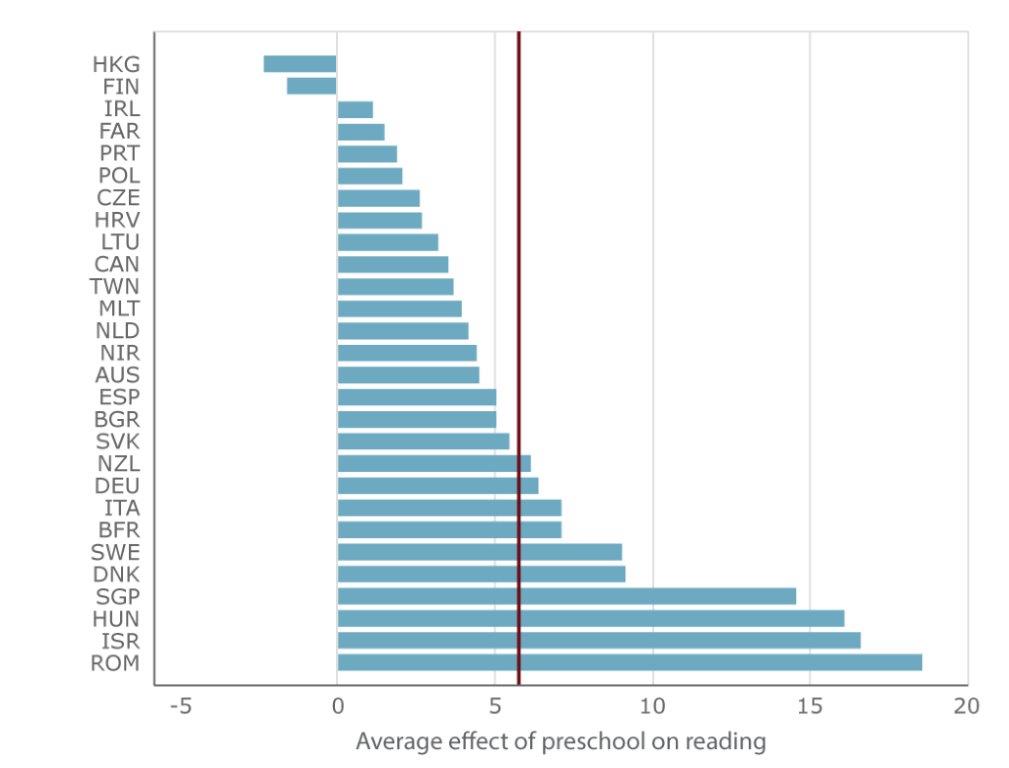It has been proven that preschool attendance improves certain short-term cognitive outcomes of children, such as early literacy, early number concepts, and health. However, very little is known about the long-term effects of preschool.
In a new study, Héctor Cebolla-Boado, Jonas Radl, and Leire Salazar examine the extent to which preschool education can reduce social background inequalities in terms of reading literacy among 4th grade students. The authors use data from the 2011 Progress in International Reading Literacy Study, which sampled 119,008 individuals from 28 developed countries. Their analysis explored how parental involvement and socio-economic background influence the effects of preschool on children’s later school performance.
Results indicate that the longer the time spent in a preschool institution, the higher the students’ reading scores in the fourth grade of compulsory schooling are. Figure 1 shows that with exceptions of Finland and Hong Kong, the average effect of preschool attendance on reading scores in the 28 countries is positive, with varying magnitude.

Figure 1: Average influence of years of preschool attendance on reading scores across countries (random-effects multi-level model).
The benefit of preschool is stronger for children of less advantaged households and for those whose parents have had a less active involvement in their children’s education before starting primary school. Even though these children benefit more from preschool education, the equalizing potential was found to be far from large enough to level out pre-existing disadvantages among 4th grade students.
Both parental education and parents’ involvement in pedagogical activities were found to stimulate children’s abilities and later school performance. However, inequalities that exist because of differing levels of parental involvement are not completely solved with enrollment in preschool education.

*This PopDigest has received funding from the European Union's Seventh Framework Programme (FP7/2007-2013) under grant agreement n° 320116 for the research project FamiliesAndSocieties. FamiliesAndSocieties (www.familiesandsocieties.eu) has the aim to investigate the diversity of family forms, relationships and life courses in Europe, to assess the compatibility of existing policies with these changes, and to contribute to evidence-based policy-making. The consortium brings together 25 leading universities and research institutes in 15 European countries and three transnational civil society organizations.